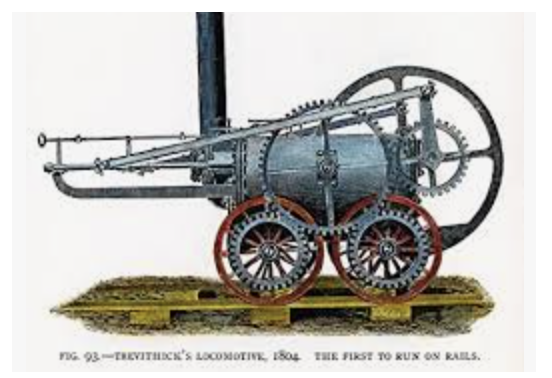Who had the first steam-locomotive on his Woke Bingo card? You did, Bueller? Go to the head of the class.
/‘Cancelled’, the 1804 train with supposed links to slavery
Trains could face a new kind of “cancellation”, as National Museum Wales reviews steam-powered technology over claims it was linked to the slave trade.
Richard Trevithick unveiled the first steam-powered locomotive in Wales in 1804, but National Museum Wales (NMW) displays covering his revolutionary invention face being altered as part of a process of “decolonising the collection”.
Trevithick had no links to slavery, but the museum has claimed that the steam power he harnessed helped drive an imperial British economy that was tied to the slave trade.
A replica of the Trevithick locomotive used in the first steam-powered rail journey faces being relabeled by NMW to include information on these claimed links between industrial technology and colonialism, as curators audit displays “rooted in colonialism and racism”.
A statement from the museum said: “Although there might not be direct links between the Trevithick locomotive and the slave trade, we acknowledge the reality that links to slavery are woven into the warp and weft of Welsh society.”
“Trade and colonial exploitation were embedded in Wales’ economy and society and were fundamental to Wales’ development as an industrialised nation.
“As we continue to audit the collection, we will explore how the slave trade linked and fed into the development of the steam and railway infrastructure in Wales.”
We cannot overestimate the importance of Trevithick’s locomotive. In 1800, the fastest a man could travel over land was at a gallop on horseback; a century later, much of the world had an extensive railway system on which trains regularly travelled at speeds of up to sixty miles per hour. This remarkable transformation, a momentous occasion in world history, was initiated in south Wales in that February of 1804.
The engine was invented and built specifically to haul coal from the mines in the area, and the lives of Welsh coal miners in 1804 were little better than those of slaves toiling in the Caribbean; maybe the museum might want to exercise its new found wokeness on that bit of history before worrying about how steam power was used in later decades. Hell, they might even want to discuss how cheap, abundant energy lifted the world out of poverty, and how the new woken movement intends to end that permanently.

